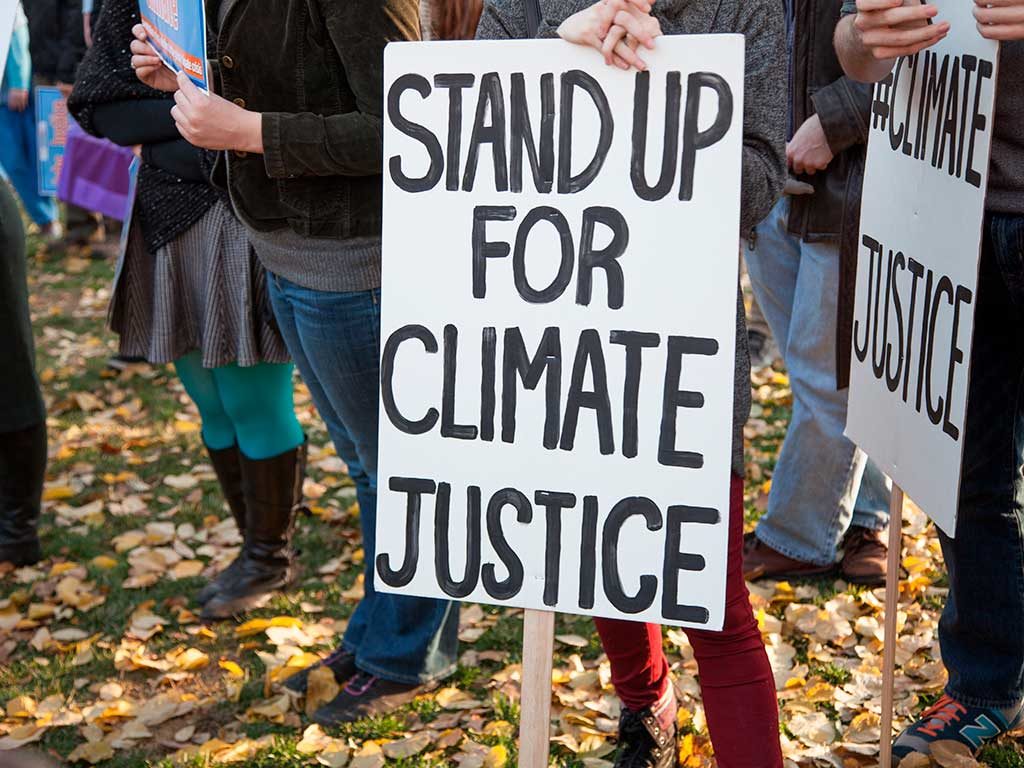
Bright Ideas No. 30
A TIME FOR CLIMATE BOLDNESS
Responding adequately to the climate crisis requires all hands on deck with no-holds-barred approaches. Every possible solution must be explored, come online and be deployed as quickly as possible.
BRIGHT IDEA: Use electric or battery-operated lawn equipment.
A 2011 study of two-stroke gasoline powered leaf blowers found that they spew out more pollution in a half hour than a 6,200-pound Ford F-150 pickup truck driven 3,900 miles from Texas to Alaska. Combined with other lawn-care machines, they’re responsible for about 10% of all mobile hydrocarbon emissions in the country. And the noise they create is enough to cause tinnitus and hearing loss.
More than 100 cities have passed regulations to ban or restrict gas powered leaf blowers. If you want a manicured lawn, opt for electric equipment that is quieter, greener and healthier.
BRIGHT IDEA: Get a better handle on the jargon.

In the wake of COP26, it’s useful to know what some of the most frequently used terms really mean.
- Mitigation. Stopping climate change from getting worse. Mitigation promotes protecting forests, planting trees, and using alternative sources of energy rather than fossil fuels.
- Adaptation. Making changes to live with the impacts of climate change already happening, such as planting trees to stay cooler or building sea walls to protect against floods.
- Carbon Neutral. Putting no additional CO2 into the atmosphere or, if you do, compensate by taking the same amount out via some other means.
- Tipping Point. When it’s already too late to stop the effects of climate change. One of the more talked-about tipping points involves the collapse of the West Antarctic ice sheet which, alone, holds enough ice to raise sea levels worldwide by about eleven feet.
- Unprecedented Transition. Making big changes together to stop climate change in ways not seen before.
- Abrupt change. Something that happens much faster than it normally would.
BRIGHT IDEA: Get inspired for climate boldness by hopeful visions.
Read Kim Stanley Robinson’s novel, “The Ministry for the Future.” It contains a wealth of ideas for bold approaches to the climate crisis and is a good story to boot. Publishers Weekly describes it as, “A sweeping, optimistic portrait of humanity’s ability to cooperate in the face of disaster.” Consider this brief excerpt:
They spoke enthusiastically of carbon-negative agriculture, clean energy, fleets of sailing ships, fleets of airships, carbon-based materials created from CO2 sucked out of the air and replacing concrete… cheap clean desalination, clean water, 3-D printed houses, 3-D printed toilets and sewage, universal education… landscape restoration, habitat corridors.
“The Ministry for the Future,” Kim Stanley Robinson
Bright Ideas is brought to you by Portland Climate Action Team, who meet on the fourth Thursday of the month, 6-7:30 p.m. All are welcome to join. FMI: portlandclimateaction@gmail.com.





